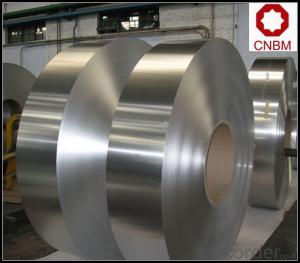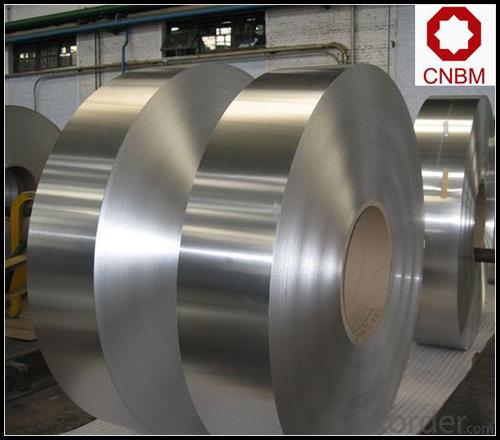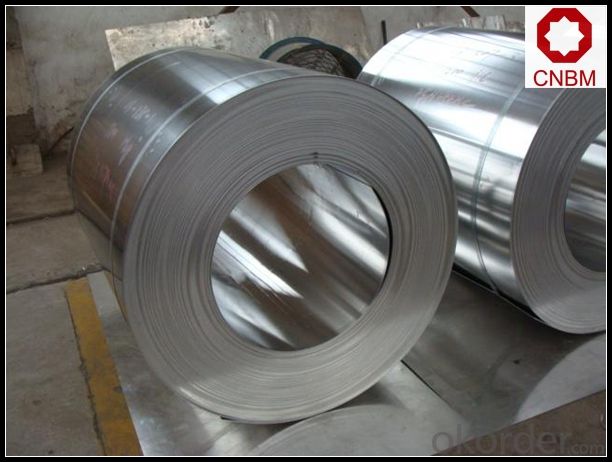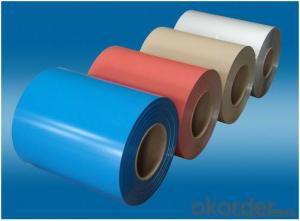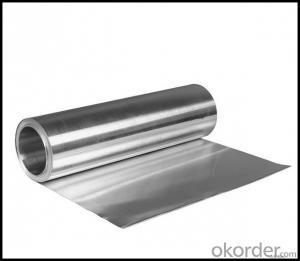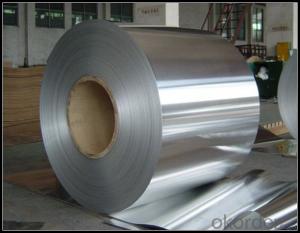0270a00983 Aluminum Coil - China Factory Supply Aluminum Coil Manufacturers
- Loading Port:
- Shanghai
- Payment Terms:
- TT OR LC
- Min Order Qty:
- 5 m.t.
- Supply Capability:
- 10000 m.t./month
OKorder Service Pledge
OKorder Financial Service
You Might Also Like
Specification
1. Specification of Aluminum Coil Manufacturers in China Factory Supply
1) Alloy | 1050, 1060,1100, 3003 3004 3105 3A21 5005 5052 etc |
2) Temper | O/H12/H14/H1/H18/H32/H34/H36/H38//H111/H112/H116/H321/T6/T651/T3/T351 etc |
3) Thickness | 0.1mm to 6mm |
4) Width | 20mm to 3300mm |
5) Coil weight | 100kgs to 6 tons depends on actual requirement |
6) Core material | Aluminum or paper |
7) Coil Inner diameter | 75mm, 150mm, 200mm, 300mm, 405mm, 505mm or as required |
8) Protective film can be added
2. Application of Aluminum Coil Manufacturers in China Factory Supply
(1).Interior: wall cladding, ceilings, bathrooms, kitchens and balconies, shutters, doors...
(2).Exterior: wall cladding, facades, roofing, canopies, tunnels,column covers , renovations...
(3).Advertisement: display platforms, signboards, fascia, shop fronts...
3. Feature of Aluminum Coil Manufacturers in China Factory Supply
*Such coil is specially designed to replace aluminum ingot, due to the high export tax of aluminum ingot, the coil has better price than ingot.
*This type of coil can fit customer's remelting furnace just like ingot, no need to make any change to the production line that was previously used for ingot. The standard coil size and weight is very suitable for the feed gate of furnace.
*This type of coil causes less material wastage than ingot when remelted.
*Our coil is made directly from ore, no need to go though the ingot making process, quality is much better than other suppliers who use ingot scrap to make coil.
Be free from Oil Stain, Dent, Inclusion, Scratches, Stain, Oxide Dicoloration, Breaks, Corrosion, Roll Marks, Dirt Streaks and other defect which will interfere with use
4. Certificate:
SGS and ROHS(if client request, paid by client), MTC(plant provided), Certificate of Origin(FORM A, FORM E, CO), Bureau Veritas and SGS (if client request, paid by client), CIQS certificate
5. Image of Aluminum Coil Manufacturers in China Factory Supply
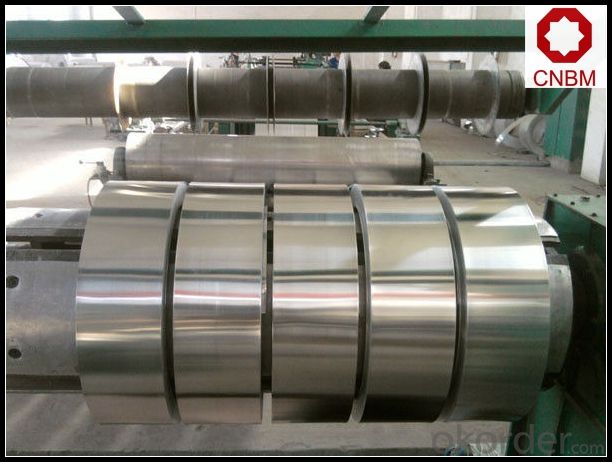
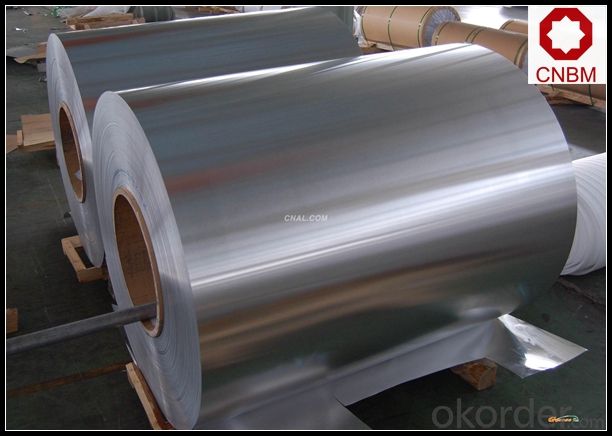
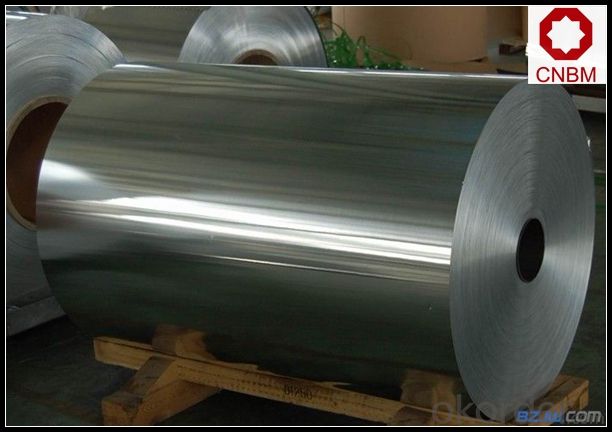
6. Package and shipping of Aluminum Coil Manufacturers in China Factory Supply
eye to wall
eye to the wall
with wood pallet (wooded case also available)
7. FAQ
1) What is the delivery time?
Dpends on actual order, around 20 to 35 days
2)What is the QC system:
We have QC staff of 20 persons and advanced equipment, each production is with MTC traced from Aluminum ingot lot.
3) What market do you mainly sell to?
Australia, America, Asia, Middle East, Western Europe, Africa etc
- Q: Are there any health risks associated with aluminum coils?
- Aluminum coils provoke some concerns due to their potential health risks. Coils made of aluminum are commonly utilized in the construction of air conditioning and refrigeration systems. However, when aluminum comes into contact with certain acids, like those present in some cooling agents and cleaning solutions, it can corrode and release aluminum ions into the surrounding air. The inhalation of these aluminum ions may entail health risks, especially for individuals with respiratory conditions or allergies. Moreover, there have been reports indicating a possible connection between aluminum exposure and certain health problems, such as Alzheimer's disease and breast cancer. Nevertheless, scientific research on this association remains inconclusive and ongoing. It is important to acknowledge that aluminum is a naturally occurring element that can be found in many foods, water sources, and even the air we breathe. Additionally, it is employed in various consumer products, including cookware and food packaging. To minimize potential health risks, it is advisable to ensure the proper maintenance and cleaning of air conditioning and refrigeration systems to prevent the accumulation of corrosive substances. Changing air filters regularly and utilizing appropriate cleaning solutions can aid in reducing the likelihood of aluminum corrosion. Additionally, individuals with pre-existing respiratory conditions or allergies may want to consider consulting with a healthcare professional to determine any specific precautions they should take.
- Q: What are the unique considerations or safety measures to be aware of when using aluminum wire in welding?
- <p>When using aluminum wire in a welding process, special precautions include ensuring proper ventilation to avoid inhaling aluminum fumes, which can be harmful. Use the correct polarity and amperage settings on your welding machine, as aluminum requires direct current electrode negative (DCEN) for most processes. Clean the aluminum surface thoroughly to remove any oxides or contaminants that can affect the weld quality. Protect the aluminum from atmospheric contamination with a shielding gas, typically argon or a mixture, during the welding process. Be cautious of the high thermal conductivity of aluminum, which can lead to faster heat dissipation and may require adjustments in welding technique or parameters.</p>
- Q: What are the common installation methods for aluminum coils?
- Aluminum coils can be installed using various methods, each with its own advantages and applications. 1. Direct Attachment: To install aluminum coils, one can directly attach them to the desired surface, like a wall or roof. The specific method of attachment, whether it's screws, nails, or adhesive, depends on the application and surface condition. This method is commonly used for exterior applications such as siding and roofing. 2. Coil Stock Installation: Another method involves cutting the aluminum coil into smaller pieces known as coil stock, which are then installed individually. This method is ideal for projects that require a customized fit, such as wrapping window frames or creating trim pieces. Precise measurement and cutting are crucial for a perfect fit. 3. Coil Over Existing Material: In certain cases, aluminum coils can be installed directly over existing materials like old siding or roofing. This cost-effective method allows for updating the appearance of a building without the need for complete removal and replacement. It also saves time and labor compared to other methods. 4. Coil Cladding: Coil cladding is a popular installation method where the aluminum coil is wrapped around an existing structure, such as a column or beam. This provides both protection and aesthetic appeal to the structure. In architectural applications, coil cladding is often used to enhance the appearance of buildings and add a layer of protection to structural elements. It's important to consider the specific requirements of the application, surface condition, and desired outcome when choosing an installation method for aluminum coils. Consulting a professional or following manufacturer guidelines is recommended to ensure proper installation, maximize longevity, and maintain optimal performance of the aluminum coils.
- Q: How are aluminum coils cut to size?
- Aluminum coils are typically cut to size using specialized coil slitting machines. These machines have rotating circular blades that make precise cuts along the length of the coil. The coil is fed through the machine, and the blades cut the aluminum into the desired width. The cut pieces are then collected and further processed or used for various applications.
- Q: I don't know, I see a metal is a metal. I understand that a bike shop bike has better service and the bike has better components. Yet I just feel the frame of a $500 bike store bike and a $100 bike from Walmart using aluminum is the same. It's like people charging $100 for audio/video cables when a $1 no-name cable works the same for tv. Is this the same marketing ploy in the bike industry?I see a Mongoose bike for $500 to $1000 on their website, yet I see one with the same frame metal at Walmart/Kmart for only $100. Mongoose is a reputable name. What gives?What do you think? Is the metal quality in a $500 aluminum bike shop bike the same as a $100 aluminum department store bike?
- There are several different alloys of aluminum used to make bike frames. A $500 bike is probably made from a higher quality alloy than a cheap $100 bike frame. Apart from the alloy used, the quality of fabrication will also be better in a more expensive bike. The components used on the more expensive bike will also be much better. The better bike will also be available in a variety of frame sizes, important if you are taller or shorter than average. There is a lot more to bike quality than the description of the metal used to make the frame and the difference in quality between a bike selling for $100 and one that sells for $500 is huge.
- Q: high-quality hi-fi power and amplifiers generate large amounts of heat. to dissipate the heat and prevent damage to the electronic components, heat-radiating metal fins are used. would it be better to make these fins out of iron or aluminum? specific heat capacities for aluminum and iron are 0.89 J/degrees C.g and 0.45 J/degrees C.g, respectively. explain your answer
- Aluminum, it takes more energy (0.89 J vs. 0.45 J) to heat it up 1 degree Celsius per gram. For example, 1 Joule of energy would heat 1 gram Al only 1.x deg C, while Fe would heat up by more than 2. Might wanna throw in something about thermal conductivity k for some bonus points.
- Q: I have a diamond back bike with an aluminum frame. will it rust if i ride or put it in the frame? is it bad for the bike?
- Aluminum does not rust, it will oxidize if exposed to the open air if the paint is scratched off. The oxidation will protect against any more damage and is stopped in it's tracks. Other aluminum parts will not rust but the mounting hardware may if it's made from low quality materials. On nuts and bolts you can put some chain oil on the tip of a rag and wipe these parts down every one in a while. On things like cables I use Tri Flow, it lubricates and protects against rust.
- Q: Is it possible to utilize a band saw for cutting an aluminum coil?
- <p>Yes, you can use a band saw to cut an aluminum coil. Band saws are versatile and can cut a variety of materials, including aluminum. However, it's crucial to use the right blade designed for metal cutting. Ensure the blade is sharp and has the appropriate teeth pitch for aluminum to avoid damaging the material or the blade. Adjust the speed to a lower setting to prevent overheating and ensure a clean cut. Always follow safety precautions and wear protective gear when operating power tools.</p>
- Q: Can aluminum coils be used in roofing or cladding systems?
- Yes, aluminum coils can be used in roofing or cladding systems. Aluminum is a popular choice for these applications due to its lightweight nature and excellent corrosion resistance. Aluminum coils are commonly used in roofing and cladding systems to create a durable and long-lasting solution. They are often coated with a protective layer or finish to enhance their performance and aesthetics. Additionally, aluminum coils are easy to work with, making installation and maintenance convenient. Overall, aluminum coils are a suitable choice for roofing or cladding systems as they offer various advantages and meet the requirements of these applications.
- Q: Can recycled aluminum coils be reused to create new ones, or are they only suitable for disposal?
- <p>Old aluminum coils can indeed be recycled and used to make new ones. Recycling aluminum is an efficient process that conserves resources and reduces energy consumption compared to mining and refining new aluminum. The recycling process involves melting the old coils, which can then be reshaped into new coils without losing any of their properties. This makes recycling aluminum coils a sustainable and environmentally friendly alternative to disposal.</p>
Send your message to us
0270a00983 Aluminum Coil - China Factory Supply Aluminum Coil Manufacturers
- Loading Port:
- Shanghai
- Payment Terms:
- TT OR LC
- Min Order Qty:
- 5 m.t.
- Supply Capability:
- 10000 m.t./month
OKorder Service Pledge
OKorder Financial Service
Similar products
Hot products
Hot Searches
Related keywords
